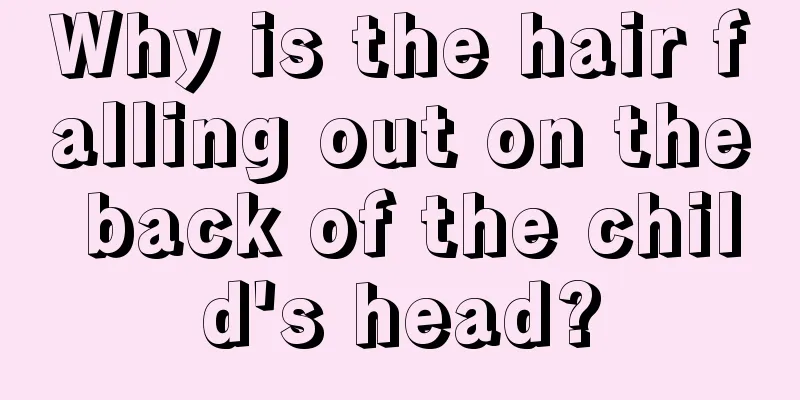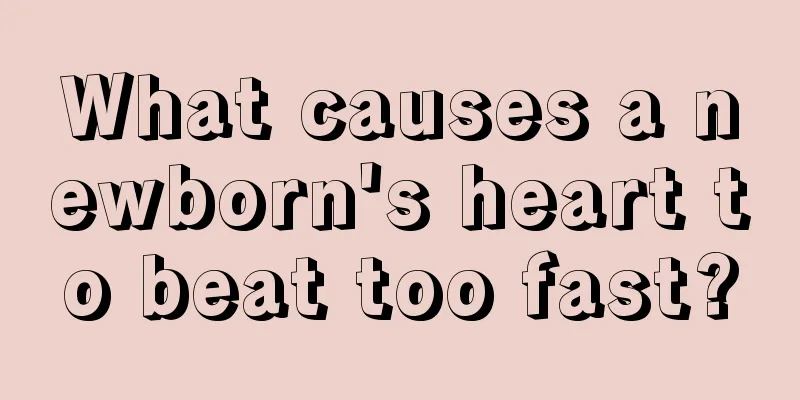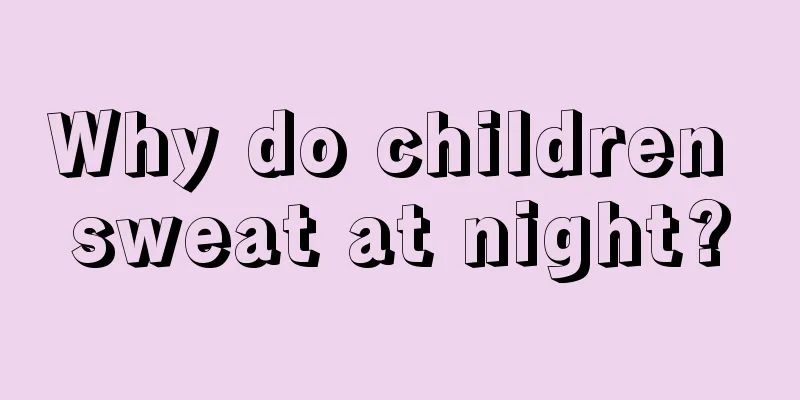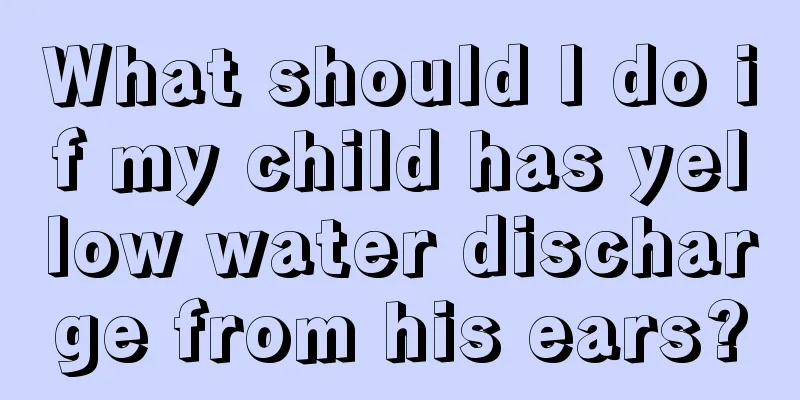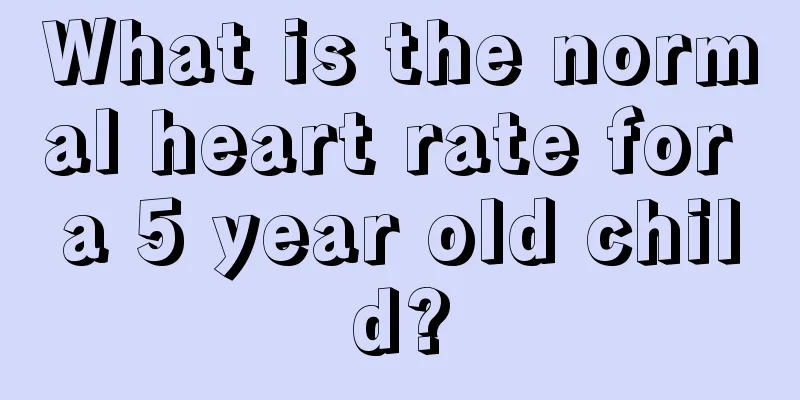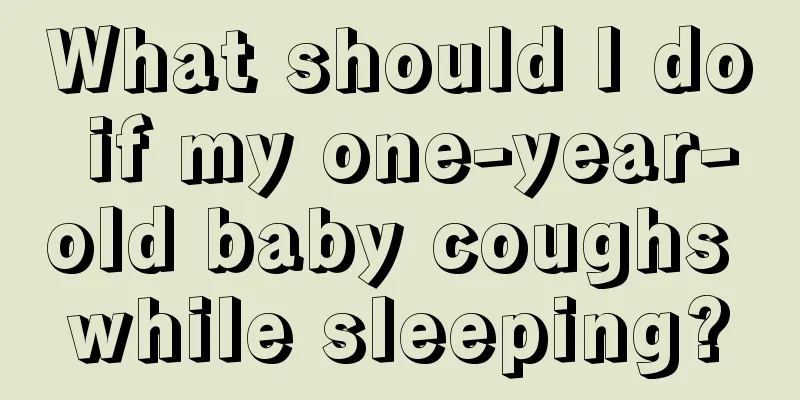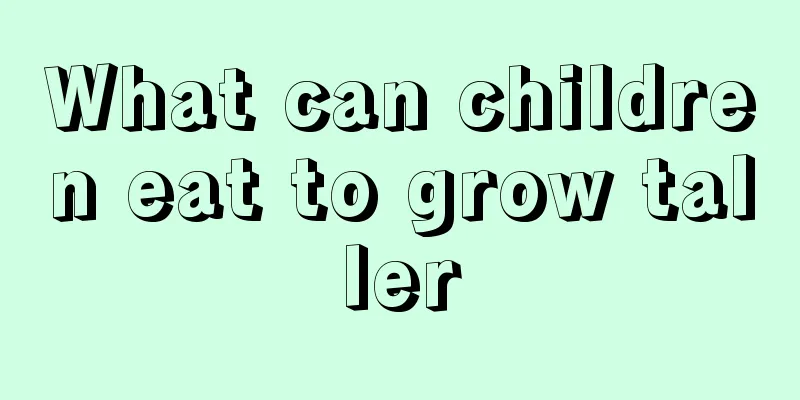At what age do children lose their teeth?
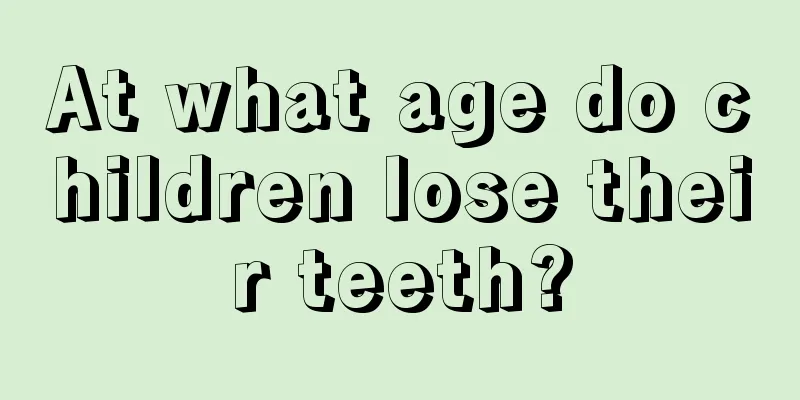
|
Children are the group that mothers pay the most attention to. Every step of their growth is under the careful care of their mothers, so the topic about children is one of the topics that mothers are most interested in. Next, let's discuss the topic of children's growth. First, we need to study at what age children lose their teeth. According to our experience, children lose their teeth at the age of 8. So do children really lose their teeth at the age of 8? Children start losing their teeth at the age of 6 Precautions 1. Teeth that don’t fall out It usually takes several months for a tooth to become loose at the root and actually fall out, and it usually falls out on its own when you are not paying attention, such as when you eat. But some teeth are like being tied with a string and never fall off. This may affect chewing or make the child feel unhappy. In this case, let your child try to rotate it. If the tooth root is completely detached, a slight rotation will make it fall out. Do not force it, and certainly not pull it hard, because if the tooth root is only half detached, strong pulling can easily cause damage and infection. 2. It hurts a little when changing teeth The process of teeth loosening and falling out is generally not painful, but as the baby teeth begin to fall out, the children's "six-year teeth" will also grow out, which may cause swelling of the gums and cause children to complain of toothache. If the child's pain is severe, he or she needs to see a dentist, who will decide whether anti-inflammatory and analgesic treatment is needed. After all, it takes a process to replace teeth. During this period, the child may complain that he cannot chew food. But even if he does not enjoy eating, it is necessary to ensure a reasonable and balanced diet. At this time, parents can make some vegetable soup, broth and other foods that are easy to chew and swallow to ensure the body's needs. At the same time, encourage him to brush his teeth and clean his mouth. 3. The deciduous teeth are still there, but the permanent teeth are coming out For some children, their permanent teeth cannot wait to come out before their deciduous teeth fall out, causing the teeth to be arranged in two rows, front and back. This is not a rare phenomenon, but a common "double-layer teeth" phenomenon when children are changing their teeth. This is most likely due to incomplete resorption of the primary tooth roots. Your doctor can usually determine the relative position of the primary and permanent teeth by taking oral X-rays to help him determine whether the primary teeth will fall out on their own or need to be removed. Once the baby teeth fall out or are removed, the permanent teeth will usually grow into the correct position slowly, but if there is not enough space for the permanent teeth to grow, early intervention is better than correction later. 4. Tooth extraction too early or too late Too early: Generally, children's first tooth falls out between the ages of 5 and 7. If a tooth falls out before the age of 4, it is usually caused by internal reasons in the body, such as metabolic disorders or periodontal disease. Gingivitis is more common among children, but periodontal disease causing tooth bone damage is very rare. Parents need to know what causes premature loss of deciduous teeth in order to protect the remaining deciduous teeth. Too late: If your child is over 7 years old and has not lost any teeth, you should take him to the hospital's dental department for a check-up. Delaying tooth replacement generally does not have any major impact on children. Sometimes, permanent teeth are "grown" under the gums for a longer period of time, which allows them to develop naturally strong and break through the "confinement" of the gums more smoothly. Regarding the question of at what age children start to lose their teeth, I think most mothers already have the answer in their minds after reading the explanation above. Children lose their teeth at age six, not eight. Many mothers mistakenly believe that children start to lose their teeth at the age of eight. In fact, this statement is wrong. The normal time for children to lose their teeth is at the age of six. Therefore, when your baby is six years old, you should pay special attention to his teeth, because it will be very painful during the tooth replacement process. |
<<: What to do if children's hair turns yellow
>>: What to do if a two-year-old child has yellow hair
Recommend
How to wean your baby off from night feeding
I believe that mothers all know the importance of...
What should you pay attention to when your child bites his nails?
It is a very common phenomenon for children to bi...
What are the symptoms of oral ulcers in children?
Children have relatively poor resistance, and the...
What should not be eaten for precocious puberty
Not all foods are suitable for children to eat. P...
What is Children's Happiness Cold and Flu?
Speaking of what Children's Happiness Cold an...
Is it normal for a baby to have a frog belly?
Many parents will find that their babies often ha...
What are the benefits of children's aerobics?
Every parent must be very concerned about the phy...
What to do if your child falls and gets a scratch
It is very easy for a child to fall when he is ju...
What's going on with the lumps on both sides of my child's neck?
Because the immunity of newborns is not as strong...
What are the clinical manifestations of herpetic pharyngitis in babies?
The little life in every family is a treasure, es...
What to do if your baby has a bad taste in his mouth
Sometimes, if you smell carefully, you will find ...
How to relieve baby's cold and stuffy nose
When babies have a cold and stuffy nose, if it is...
What to do if a 7-year-old child has a continuous fever
In our daily life, fever is a very common disease...
What is the impact of patent ductus arteriosus on children?
Have you ever heard of patent ductus arteriosus? ...
What are the benefits of drinking milk for children?
Many people know that milk is rich in protein and...

